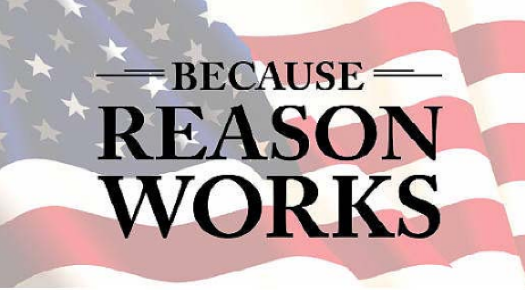
Since not all Americans pray, American Humanist Association (AHA), one of the nation’s largest advocacy groups for non-believers and secularists, wants the first Thursday of May to be designated by Congress as the National Day of Reason. However, that day has already been designated as the National Day of Prayer, with a 65-year-long history of backing from Congress as well as state and local governments along with every sitting president since its establishment in 1952.
Roy Speckhardt, executive director of AHA, says that is the very problem.
“This is government recognition of prayer and that is wrong, no matter how you look at it,” Speckhardt said. “Having a National Day of Reason on the same day says this is an example of a day the government can endorse that doesn’t exclude people based on their answers to a religious question.”
Even though there is little indication that AHA will have its way, with a proposal to establish National Day of Reason having gone nowhere in Congress last year and this year’s proposal still being stalled in committee, there is some evidence pointing towards the support that atheists and humanists are gaining as the so-called third rail of American politics.
Three sitting American representatives, including California’s Judy Chu and Mike Honda and Washington D.C.’s nonvoting delegate Eleanor Holmes Norton, have sponsored this year’s proposal – more than in any other year so far. Honda describes himself as a Protestant.
Last year, the governors of Iowa, Delaware and Nebraska had issued proclamations designating a Day of Reason alongside the existing National Day of Prayer. Iowa marked the day this year as well.
President Barack Obama’s 2015 proclamation of National Day of Prayer acknowledged those Americans who practice no faith at all.
Secular groups in San Diego, Maine and Portland, OR have continued to organize commemorations, talks, blood drives, picnics and other special events to mark the occasion since 2011.
But with national days already acknowledging several other causes, does America really need a National Day of Reason? And if yes, why must it be on the same day as the National Day of Prayer, which was shaped by President Harry Truman and advocated by all religious groups?
Matthew Bulger, a legislative associate with AHA, says the answer to the first question is in fact a yes. According to him, the federal government and politicians from all places either ignore or reject a National Day of Reason at their own peril.
“That’s telling an entire segment of the population that its government supports certain religious values and is not concerned with the nontheistic views of a large portion of the American population,” he said. “You are discouraging Americans from participating in the political process because they assume that their views will not be considered by their elected members of Congress.”
Bulger turned to polls that show as many as 23 percent of all Americans say they do not associate with any one religion. Of them, 61 percent say they believe in God while 62 percent say they seldom or never pray.
Supporters of National Day of Reason hope it would follow the same path paved by International Darwin Day, which was propagated by non-believers and scientists to be commemorated on Charles Darwin’s birthday that falls on February 12 each year. Shaped by a handful of non-believers and scientists during the 1990s, International Darwin Day is now recognized in different parts of the world at the global, state as well as local levels. Organizers say that even though Congress has still not passed a formal resolution for International Darwin Day, it continues to receive more support for the occasion each year.
Yet, skeptics suggest National Day of Reason could have to wait much longer before being recognized by Congress.
Alan Wolfe, director of Boisi Center for Religion and American Public Life at Boston College, and Paul Djupe, co-editor of Politics and Religion, have described AHA’s choice to designate National Day of Prayer as the National Day of Reason as more of a fundraising strategy and lacking in serious intention.
“Religious people still compose the vast majority of Americans and so Congress, especially a Republican Congress, will have no truck with this proposal,” Djupe said. “But, too, the nonreligious tend not to be motivated by these kinds of appeals unless they are squarely pitted against religion.”
Nick Pitts, director of cultural engagement for Denison Forum on Truth and Culture, a Christian advocacy group based in Dallas, said however there is no reason that would keep Christians from supporting the proposal for a National Day of Reason.
“It’s almost a false dichotomy that we have to choose,” he said. “If you are an evangelical, you understand from Isaiah 1:18 that our Lord said, ‘Come and let us reason together.'… Science asks the ‘how’ questions and religion asks the ‘why’ questions. Personally, as Christians, I don’t think we have anything to be afraid of.”
Photo Credits: National Day of Reason
